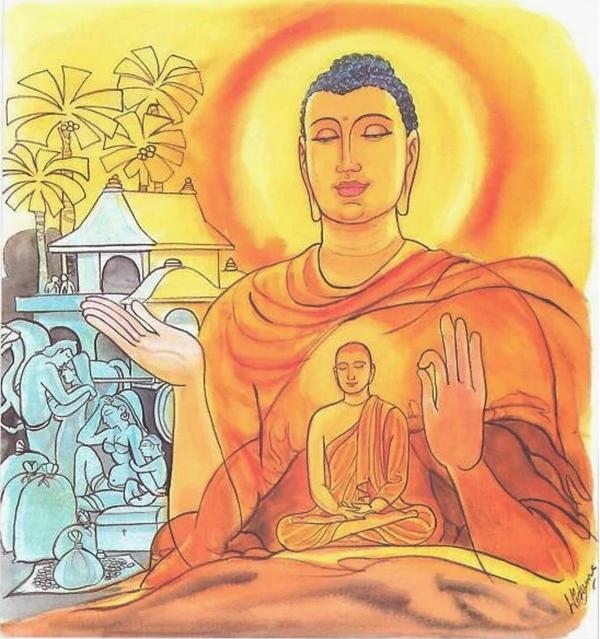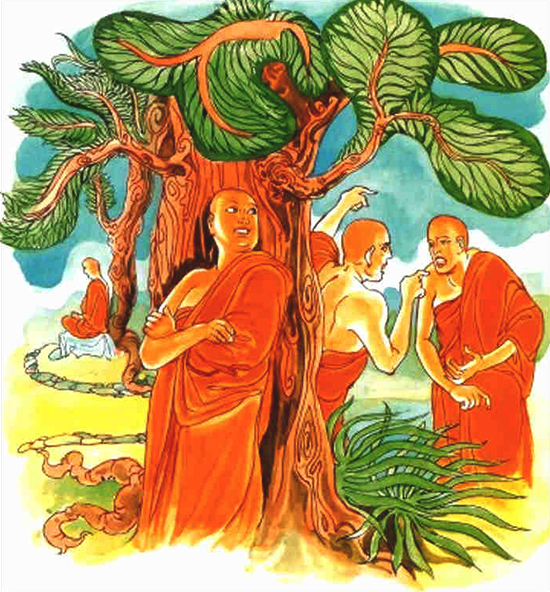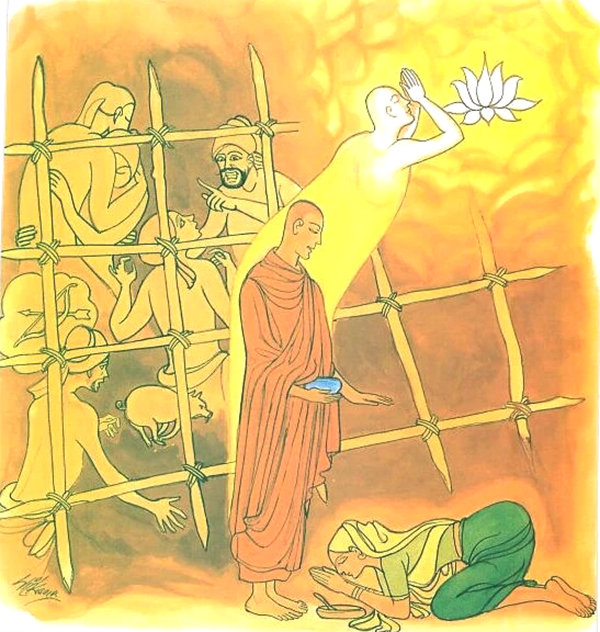Brahmanavagga: The Holy Man
- Exert yourself, O holy man! Cut off the stream (of craving), and discard sense desires. Knowing the destruction of all the conditioned things, become, O holy man, the knower of the Uncreated (Nibbana)!
-
When a holy man has reached the summit of two paths (meditative concentration and insight), he knows the truth and all his fetters fall away.
-
He for whom there is neither this shore nor the other shore, nor yet both, he who is free of cares and is unfettered — him do I call a holy man. [27]
-
He who is meditative, stainless and settled, whose work is done and who is free from cankers, having reached the highest goal — him do I call a holy man.
-
The sun shines by day, the moon shines by night. The warrior shines in armor, the holy man shines in meditation. But the Buddha shines resplendent all day and all night.
-
Because he has discarded evil, he is called a holy man. Because he is serene in conduct, he is called a recluse. And because he has renounced his impurities, he is called a renunciate. Continue reading







